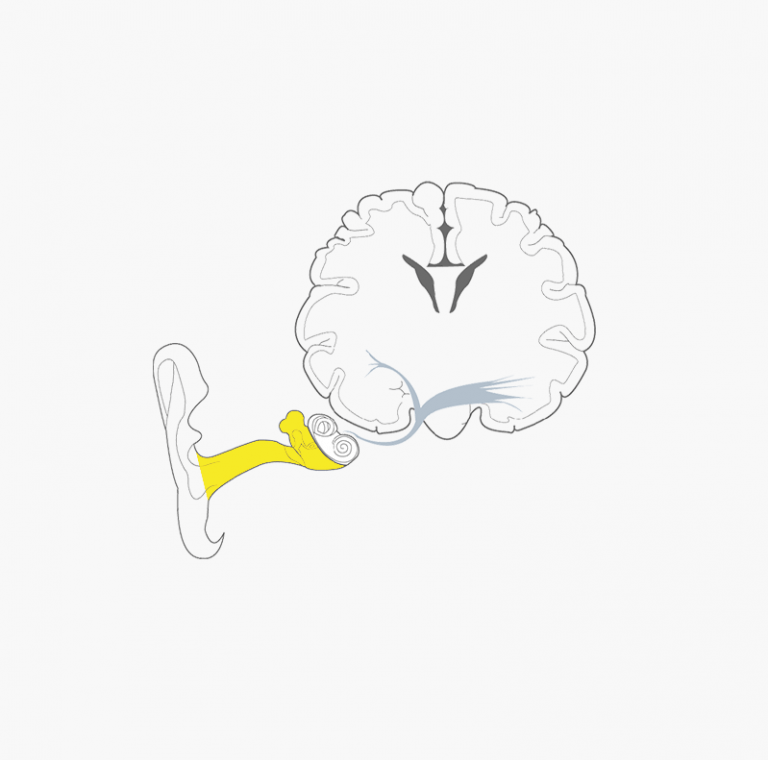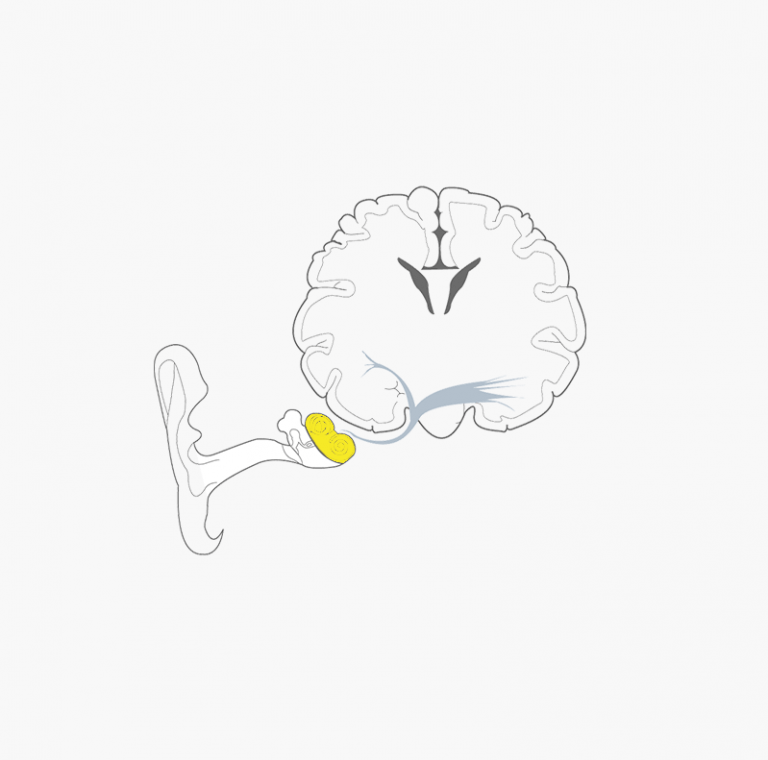In both types of hearing loss, a screening test may help you identify hearing loss. Hearing aids can help amplify sounds and give your brain the help it needs to process the information they convey.
Understand hearing
In Quebec 81,5 % of the costs of the RAMQ hearing loss program are incured by people aged 55 and older, and 68 % by people over 65. Hearing difficulties are more prevalent in children than one would think. Deafness affects 1 to 3 infants out of 1,000 births. 11,5 % of children younger than 15 have hearing difficulties, and 21 % of them wear a hearing aid. Hearing loss also occurs in the workplace. Every year, 500,000 workers are exposed to excessive daily noise. About 1,000 of them are affected by occupational hearing loss and receive compensation including hearing aids from the CNESST.
Hear Outer
Hear Middle
Hear Inner
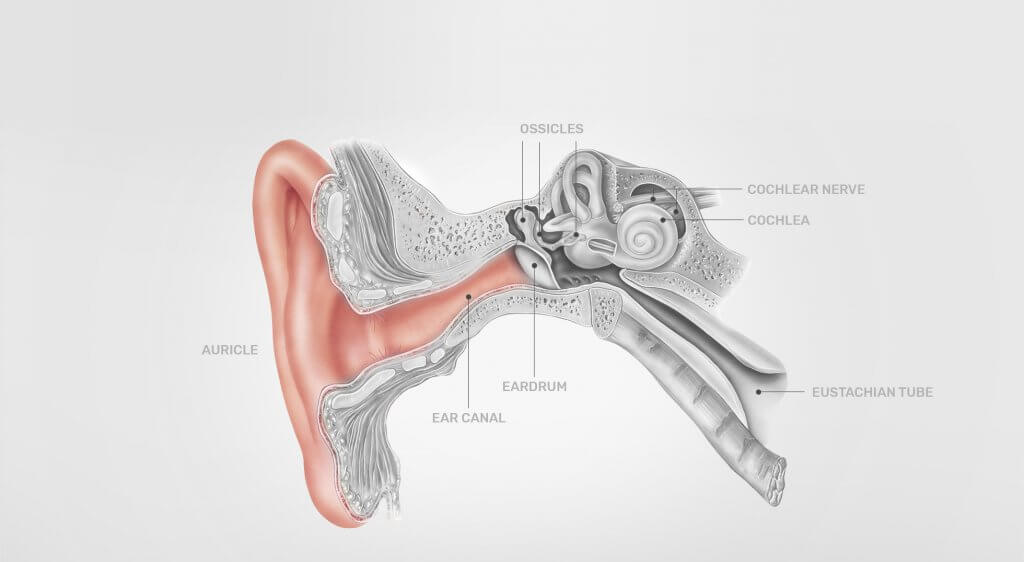
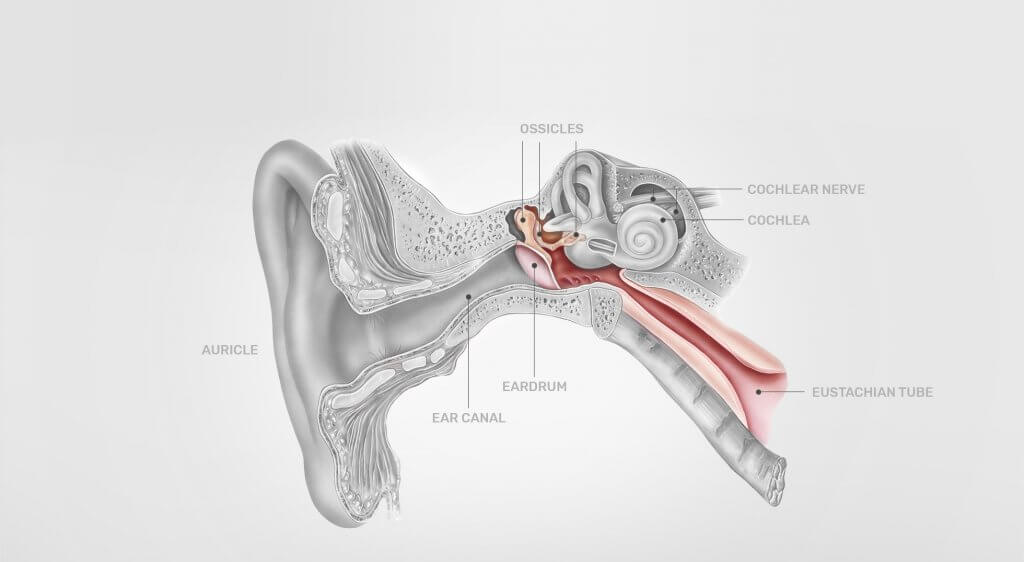
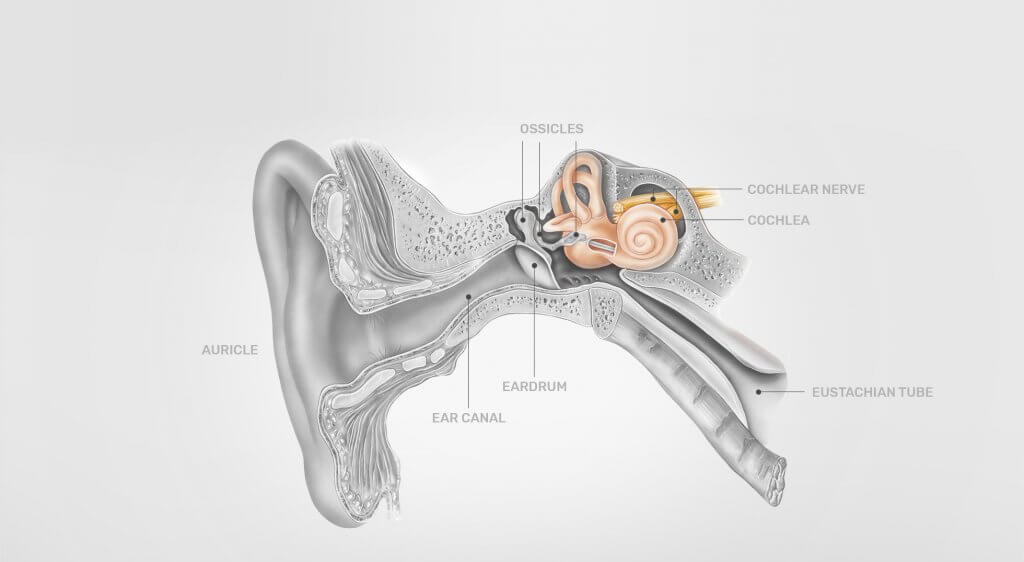
HEARING DIFFICULTIES
Multiple factors can cause hearing loss, but all hearing loss can fit into one of these two categories.



